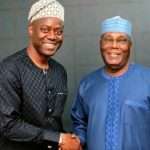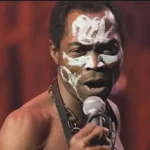By Richard Thomas



June 12 in Nigeria stands as a day etched in the annals of the nation’s history. It symbolizes a poignant blend of hope, struggle, and ultimate victory for democracy. To fully grasp the significance of this date, one must journey back to the early 1990s, a period marked by political unrest, military rule, and the fervent desire of the Nigerian people for democratic governance.
The Background:
In 1993, Nigeria was under the military dictatorship of General Ibrahim Babangida. The country had been in the grip of military rule for most of its post-independence history, with brief interludes of civilian government. Babangida, after a series of political maneuvers and delays, announced the scheduling of a presidential election for June 12, 1993. This announcement was met with both skepticism and cautious optimism by the populace, who had long yearned for a return to civilian rule.
The Election:
The June 12, 1993 election was historic for several reasons. It was the first time in over a decade that Nigerians would vote to elect their leader in what was promised to be a free and fair election. The leading candidates were Chief Moshood Kashimawo Olawale Abiola of the Social Democratic Party (SDP) and Alhaji Bashir Tofa of the National Republican Convention (NRC).
On election day, millions of Nigerians turned out to cast their votes. The atmosphere was charged with hope and a sense of purpose. Observers, both domestic and international, hailed the election as one of the freest and fairest in Nigeria’s history. The preliminary results suggested a clear victory for Chief M.K.O. Abiola, a businessman and philanthropist, who had captured the imagination of the Nigerian populace with his message of hope and prosperity.
The Annulment:
However, the euphoria was short-lived. On June 23, 1993, before the final results could be officially announced, General Babangida annulled the election, citing allegations of electoral irregularities. This action plunged the country into political turmoil. Protests erupted nationwide, and civil society groups, alongside pro-democracy activists, demanded the reinstatement of the election results.
The annulment led to widespread unrest and a deepening crisis of legitimacy for Babangida’s regime. Under mounting pressure, he eventually “stepped aside” in August 1993, handing over power to an interim national government led by Chief Ernest Shonekan. However, this government was short-lived as it was overthrown by General Sani Abacha in November 1993.
The Struggle Continues:
The years that followed were marked by intense repression. Abacha’s regime was notorious for its human rights abuses and its crackdown on pro-democracy activists. Chief Abiola, who had declared himself the rightful president, was arrested in 1994 and remained in detention until his death in 1998. His demise under suspicious circumstances, just as Nigeria was on the brink of a transition to civilian rule, deepened the sense of loss and injustice among Nigerians.
Despite the repression, the spirit of June 12 refused to be extinguished. It became a rallying point for pro-democracy movements, symbolizing the struggle for justice, electoral integrity, and the will of the people. Organizations like the Campaign for Democracy (CD) and the National Democratic Coalition (NADECO) kept the flame alive, mobilizing international support and pressuring the regime for a return to democracy.
The Return to Democracy
In 1999, following General Abacha’s sudden death, Nigeria transitioned back to civilian rule under General Abdulsalami Abubakar. The elections held that year ushered in a new democratic government led by President Olusegun Obasanjo. This marked the beginning of Nigeria’s Fourth Republic, a period of relative political stability and democratic governance.
The Recognition
For many years, the significance of June 12 was largely acknowledged by civil society and pro-democracy activists, but it was not given official recognition by the Nigerian government. It was not until 2018, under the administration of President Muhammadu Buhari, that June 12 was officially designated as Democracy Day, replacing May 29, which had previously been observed.
President Buhari’s administration posthumously awarded Chief M.K.O. Abiola the title of Grand Commander of the Federal Republic (GCFR), Nigeria’s highest honor, acknowledging his pivotal role in the fight for democracy. The formal recognition of June 12 as Democracy Day was seen as a significant step in honoring the sacrifices made by Abiola and many others who fought against military rule.
The Commemoration:
Today, June 12 is marked with ceremonies, public speeches, and various activities across Nigeria. It is a day of reflection on the journey of the nation towards democratic governance and a celebration of the resilience and determination of the Nigerian people. The day serves as a reminder of the importance of upholding democratic values, electoral integrity, and the rule of law.
In Abuja, the nation’s capital, the commemoration is often marked by a presidential address, where the president reflects on the state of the nation, the progress made, and the challenges ahead. Wreaths are laid at the graves of Chief M.K.O. Abiola and other fallen heroes of democracy. Public discussions and debates are held, focusing on Nigeria’s democratic journey, governance, and the ways to strengthen democratic institutions.
In Lagos, where Chief Abiola hailed from, the celebrations are particularly poignant. Various events, including marches, symposiums, and cultural displays, are organized to honor his legacy. The Nigerian media plays a significant role in these commemorations, with extensive coverage, documentaries, and special programs that educate the public on the history and significance of June 12.
The Legacy:
The legacy of June 12 extends beyond the date itself. It has become a symbol of the enduring struggle for democracy in Nigeria and a testament to the power of the people’s will. The story of June 12 reminds Nigerians and the world that democracy, though often fraught with challenges, is worth fighting for. It underscores the importance of vigilance, participation, and the collective responsibility to protect and nurture democratic values.
As Nigeria continues to navigate its democratic journey, the commemoration of June 12 serves as a beacon of hope and a reminder of the resilience and strength of the Nigerian spirit. It is a day that honors the past, celebrates the present, and looks forward to a future where the principles of democracy are upheld and cherished by all.










